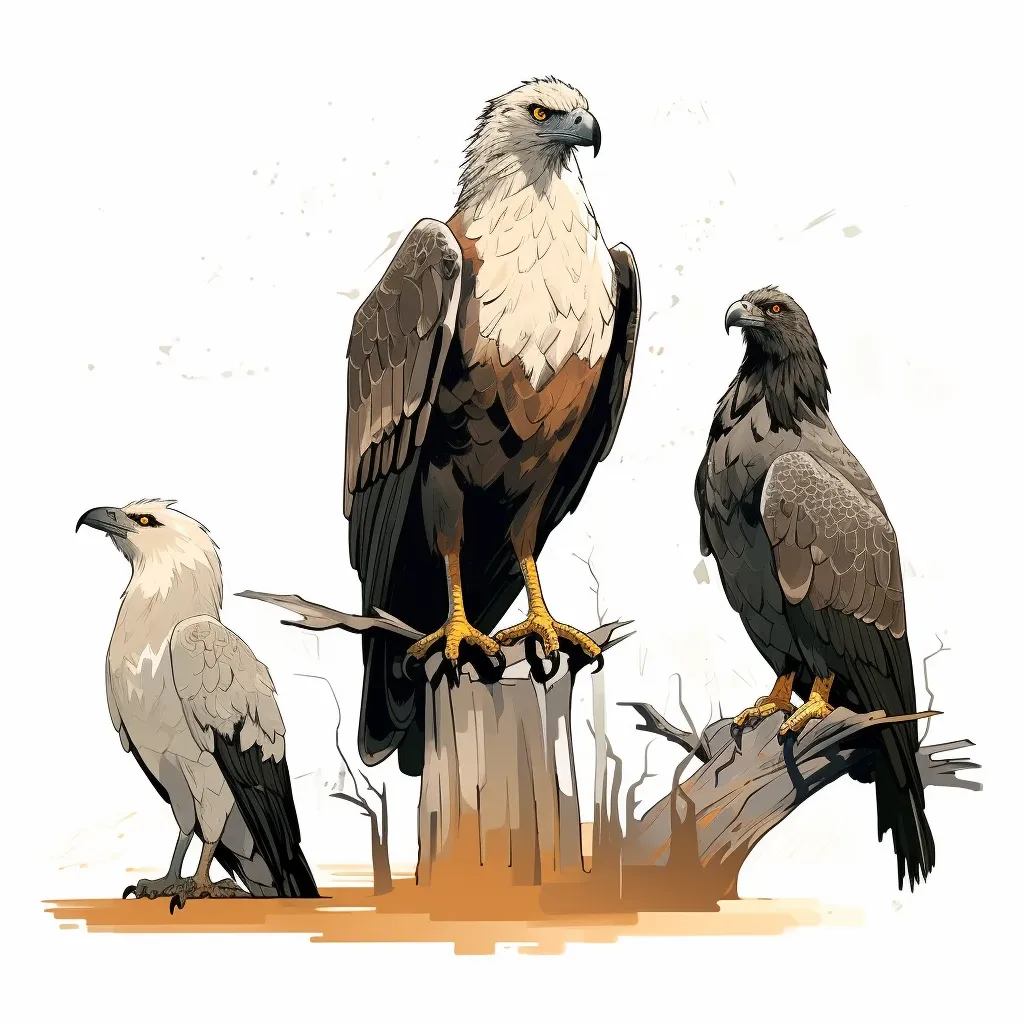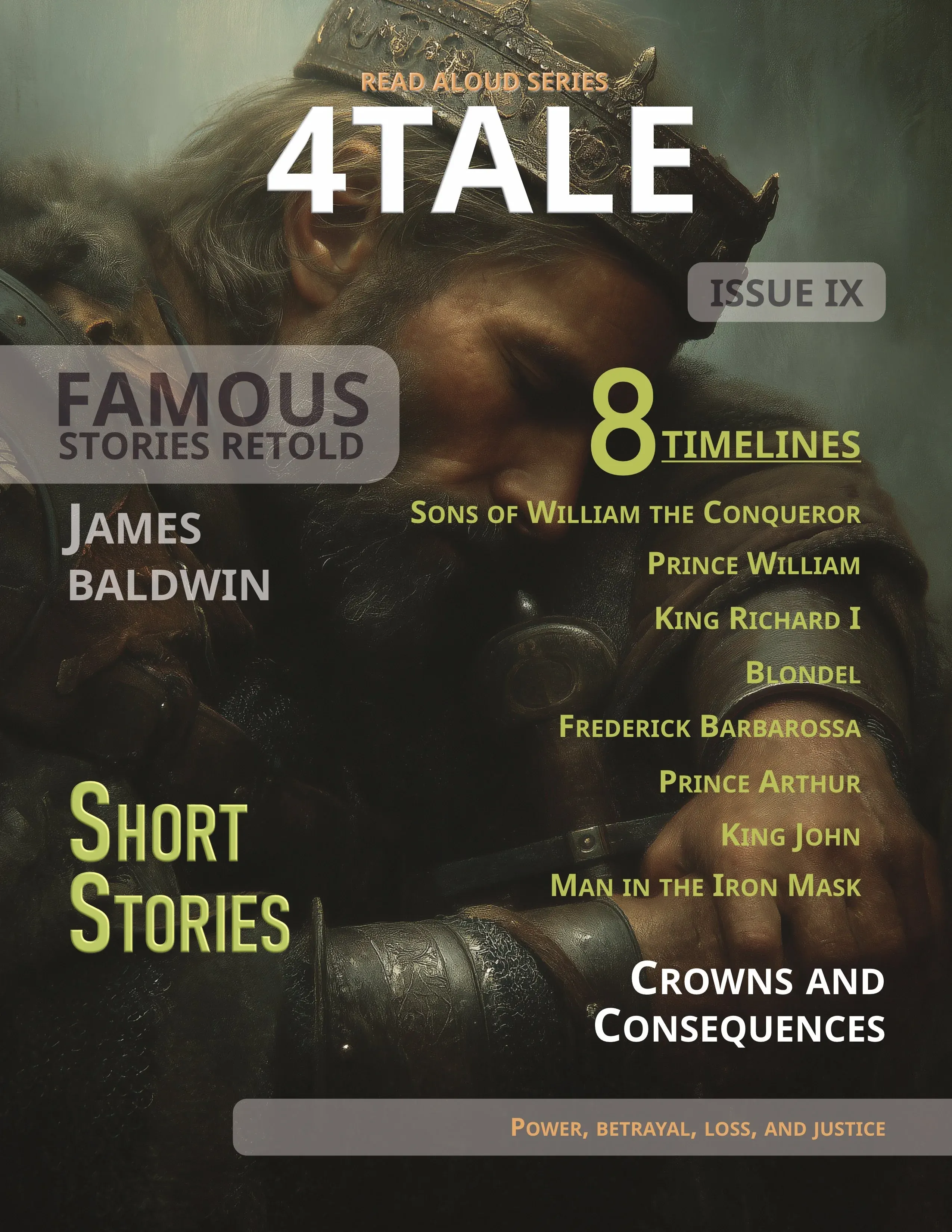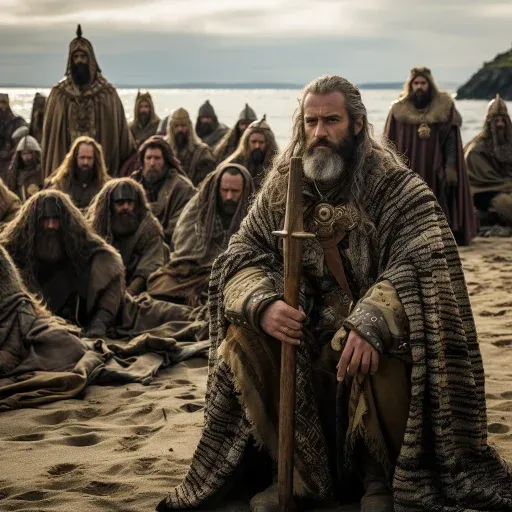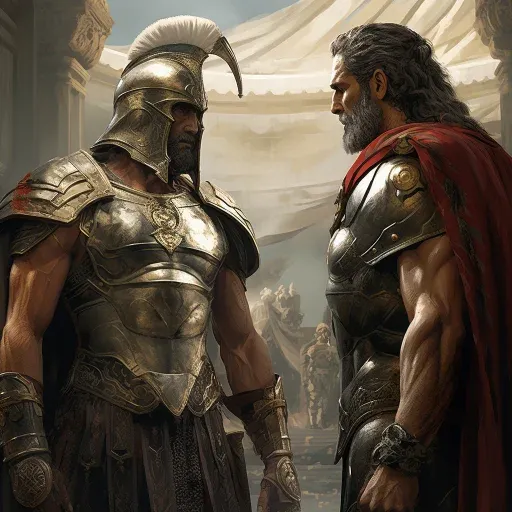BY JAMES BALDWIN
The Sons of William the Conqueror
Famous Stories Retold: Story 4 of 50

Heading

Sons: He had three sons—Robert, William, and Henry—each of whom fought over their inheritance.
Division: Upon William's death, his lands were divided among his sons, leading to further discord.
A good book we like, we explorers. That is our best amusement, and our best time killer
- Roald Amundsen, Explorer
William the Conqueror’s Legacy: A Feathered Fable Unfolds
Unearth the fascinating history of the descendants of Normandy's fierce leader, William the Conqueror, as we delve into the lives of his sons. A tale of royalty, power, and family ties, their story is a riveting chapter in England's rich tapestry. With its profound impact on the throne's succession and England's political landscape, this lineage bears significance even today. By journey's end, you'll have unraveled the intriguing complexities of this regal family saga. Prepare to be enthralled by the triumphs, tragedies, and tumultuous relationships that defined the legacy of these medieval rulers.
Understanding the Era: The Reign of William the Conqueror
The period in which William the Conqueror reigned was a significant era in English history. William, also known as William I, ascended to the throne after the famous Battle of Hastings in 1066, marking the commencement of the Norman conquest of England. His reign witnessed sweeping changes in the country's social, political, and cultural life. The introduction of the Feudal system, the Domesday book's compilation, and the construction of numerous castles and cathedrals are notable landmarks of his reign. William's rule set the stage for the lives and actions of his sons, who would have profound roles in shaping history.
The Royal Offspring: An Overview of the Sons of William the Conqueror
William the Conqueror fathered four sons, namely Robert Curthose, Richard, William Rufus, and Henry Beauclerc. Each son played a unique role in history and contributed to shaping the future of England. Robert Curthose, the eldest, was a formidable warrior but failed to secure the English crown. Richard died young, while William Rufus succeeded his father as the King of England. Henry Beauclerc, the youngest, would eventually become one of England's most respected kings. The lives of these sons are marked by power struggles, ambition, and at times, treachery.
Podcast
Robert Curthose: The Eldest Son's Struggle for Power
Robert Curthose, the eldest son of William the Conqueror, led a life marked by a constant struggle for power. Despite being the eldest, he was denied the English crown, causing a rift between him and his father. Robert was a formidable warrior, known for his courage and military prowess. However, his relationship with his brothers, especially William Rufus, was marked by conflict and rivalry. His quest for power led him to rebel against his father, and later, to wage war against his brothers. Despite his efforts, Robert's life ended in captivity, a stark contrast to his early ambition and bravery.
William Rufus: The Red King's Controversial Reign
William Rufus, the second son of William the Conqueror, was a king who led an intriguing and controversial reign. Known as William II of England, his nickname 'Rufus' was derived from his red face or perhaps his hair. His reign was marked by disputes with the Church, rebellions, and military campaigns. He was a skilled soldier and a shrewd ruler, but he was also known for his harsh treatment of his subjects. Despite his controversial reign, he made a significant contribution to the consolidation of Norman rule in England, strengthening the monarchy and laying the foundations for the development of the English feudal system.

Henry Beauclerc: The Scholar King and His Legacy
Henry Beauclerc, also known as Henry I, was the youngest son of William the Conqueror. Unlike his brothers, Henry was not initially expected to inherit significant land or power. This may have contributed to his pursuit of knowledge, earning him the nickname 'Beauclerc' which means 'good scholar'. Upon his brother Rufus's untimely death, Henry seized the throne, demonstrating his political savvy. His reign was marked by legal and administrative reforms, which earned him a reputation as one of medieval England's most effective kings. His legacy, however, was overshadowed by the succession crisis following his death which led to a period of civil war known as The Anarchy.
Interactions and Conflicts: The Brothers' Power Struggles and Impact on History
The sons of William the Conqueror, Robert Curthose, William Rufus, and Henry Beauclerc, were more than just siblings; they were rivals in a high-stakes game of power and politics. Their interactions and conflicts significantly shaped the course of English and Norman history. Robert's rebellion against his father, William's controversial reign, and Henry's strategic seizure of the throne all contributed to a period of instability and conflict. Yet their struggles also paved the way for significant social, political, and administrative changes in England. The mark they left on history is a testament to their individual characters, ambitions, and the complex dynamics of their familial relationships.
Conclusion
The lives of William the Conqueror's sons - Robert Curthose, William Rufus, and Henry Beauclerc, were indelibly marked by struggles for power, controversial reigns, and profound legacies. Their intertwined narratives not only shaped England's history but continue to echo in the annals of time. Understanding their stories, their conflicts, and their contributions helps us to unravel the rich tapestry of England's royal lineage. So, as you step back from this medieval saga, remember, every king, every conflict, every triumph, and tragedy has its roots in these sons of William the Conqueror.





